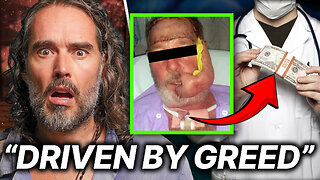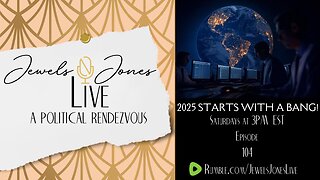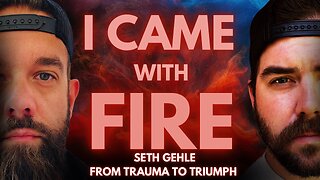Premium Only Content

G. K. Chesterton: Eugenics And Other Evils (Full)
Circa 1922
In the second decade of the twentieth century, an idea became all too fashionable among those who feel it is their right to set social trends. Wealthy families took it on as a pet cause, generously bankrolling its research. The New York Times praised it as a wonderful "new science." Scientists, such as the brilliant plant biologist, Luther Burbank, praised it unashamedly.
Educators as prominent as Charles Elliot, President of Harvard University, promoted it as a solution to social ills. America's public schools did their part. In the 1920s, almost three-fourths of high school social science textbooks taught its principles. Not to be outdone, judges and physicians called for those principles to be enshrined into law. Congress agree, passing the 1924 immigration law to exclude from American shores the people of Eastern and Southern Europe that the idea branded as inferior. In 1927, the U. S. Supreme Court joined the chorus, ruling by a lopsided vote of 8 to 1 that the sterilization of unwilling men and women was constitutional.
That idea was eugenics and in the English-speaking world it had virtually no critics among the "chattering classes." When he wrote this book, Chesterton stood virtually alone against the intellectual world of his day. Yet to his eternal credit, he showed no sign of being intimidated by the prestige of his foes. On the contrary, he thunders against eugenics, ranking it one of the great evils of modern society.
-
 16:03
16:03
Tundra Tactical
7 hours ago $6.80 earnedNew Age Gun Fudds
78.2K14 -
 8:22
8:22
Russell Brand
12 hours agoThey want this to happen
165K342 -
 2:06:43
2:06:43
Jewels Jones Live ®
1 day ago2025 STARTS WITH A BANG! | A Political Rendezvous - Ep. 104
90.5K35 -
 4:20:41
4:20:41
Viss
12 hours ago🔴LIVE - PUBG Duo Dominance Viss w/ Spartakus
72.3K8 -
 10:15:14
10:15:14
MDGgamin
15 hours ago🔴LIVE-Escape From Tarkov - 1st Saturday of 2025!!!! - #RumbleTakeover
59.9K2 -
 3:54:19
3:54:19
SpartakusLIVE
11 hours agoPUBG Duos w/ Viss || Tactical Strategy & HARDCORE Gameplay
72.1K1 -
 5:54:54
5:54:54
FRENCHY4185
11 hours agoFRENCHY'S BIRTHDAY BASH !!! THE BIG 40 !!!
81.6K3 -
 1:23:33
1:23:33
Michael Franzese
20 hours agoThings to look forward to in 2025
99.4K47 -
 3:23:02
3:23:02
I_Came_With_Fire_Podcast
21 hours agoDefeating VICTIMHOOD: Advocacy, Resiliency, and Overcoming Abuse
104K19 -
 2:00:56
2:00:56
Game On!
1 day ago $10.38 earnedNFL Experts debate if Joe Burrow will make HISTORY in Week 18!
118K16